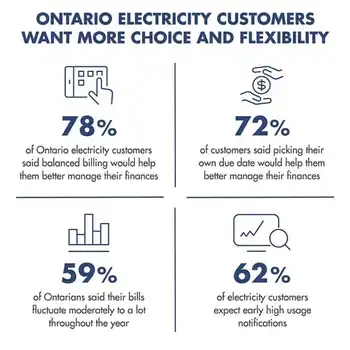ConEdison, union have tentative contract
By New York Times
NFPA 70e Training - Arc Flash
Our customized live online or in‑person group training can be delivered to your staff at your location.

- Live Online
- 6 hours Instructor-led
- Group Training Available
The union said it had successfully opposed a company plan to give new employees a 401 (k)-style plan rather than traditional pensions. It also claimed to have won "significant wage increases" and a small increase in out-of-pocket health costs, according to Joe Flaherty, a spokesman for Local 1-2 of the Utility Workers of America, which represents 8,833 Con Edison workers.
Mr. Flaherty declined to discuss the specifics of the deal, which came more than three days after the original contract deadline had expired, because his union's board and membership had not had a chance to vote on the agreement. A vote to ratify the deal may not come until after the July 4 weekend.
Still, "the people of New York should be relieved" that the workers will remain on the job and there will be no disruption to the company's power services, Mr. Flaherty said.
Michael Clendenin, a spokesman for Con Edison, said, "We think this is a fair deal for the workers, and we want to hold down costs, so we hope the union membership will ratify it."
The agreement helped avert what would have been the first strike in a quarter-century at Con Edison. But the path to the accord was contentious. The union said it had made its first proposals more than two weeks ago but did not hear back from the utility until two days before the original contract deadline of Sunday morning at 12:01 a.m.
When it was clear that the two sides were far apart at that late hour, Gov. David A. Paterson stepped in and called for a three-day cooling-off period, with a new strike deadline set for midnight Tuesday. Barbara C. Deinhardt, the chairwoman of the New York State Employment Relations Board, joined the talks as a mediator to emphasize Governor Paterson's determination to avoid a strike during the summer when power usage surges.
Mr. Flaherty credited Governor Paterson for "having a significant impact on Con Edison and the talks."
The previous day, the talks resumed and got off to a rocky start, Mr. Flaherty said, because the first hour of negotiations was spent arguing about who should have a seat at the table.
As the day wore on, Ms. Deinhardt and another mediator, Hezekiah Brown, shuttled between offices where the two sides were camped out, suggesting that a deal was still far off.
Late that afternoon, Mr. Flaherty said that some progress had been made on the issue of wages — the utility had proposed increases of up to 1.5 percent — but that the company continued to push for a 401 (k)-style plan for new workers, rather than the traditional pensions, something the union vigorously opposes.
Con Edison officials have declined to discuss the content or tenor of the talks but issued a statement saying that the utility was prepared to produce a "fair and equitable contract."
Minutes before midnight, the two sides agreed to stop the clock and continue talking, with the hope of signing a deal by daybreak. The company had agreed to drop its demands for a 401 (k)-style plan if it received concessions on wage increases, according to Mr. Flaherty. Mr. Clendenin said the reverse: that once wage and health care increases were agreed upon in principle, the company backed down from its proposal to alter the pension plan.
"All the pieces of the puzzle had to come together," Mr. Clendenin said.
As talks progressed over the past few days, the utility finished contingency plans in case a strike would be called. Con Edison was prepared to reassign its 4,000 managers to run the utility's electric, gas and steam networks in New York City and Westchester County. The company said that more than half of the utility's managers had started in field and would be returning to jobs they once held.











